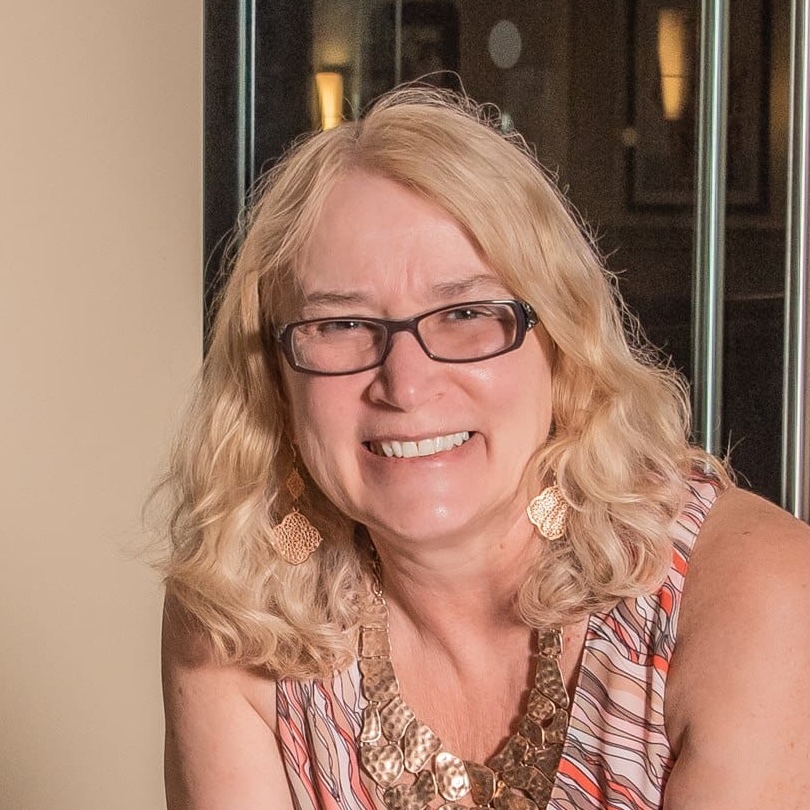- Jemar Tisby and Doug Stone on Awakening Justice: Rediscovering Abolitionists' Calls for Equality Lori Adams-Brown 53:08
If you’re feeling overwhelmed by the complexities of racial justice and faith intersections, and wondering how to truly make a difference, then you are not alone! The struggle to understand the historical context and apply it to modern-day challenges can be daunting. Many may be seeking guidance on how to effectively navigate these issues and create meaningful change.
My special guests are Jemar Tisby, Doug Stone
Jemar Tisby, the New York Times bestselling author of “The Color of Compromise,” is a historian, author, and speaker. His work has been featured in reputable platforms such as CNN, the Washington Post, the Atlantic, and the New York Times. Jemar’s expertise in addressing the truth about the American church’s complicity in racism makes him a significant voice in the intersection of faith and racial justice. As a PhD candidate in history at the University of Mississippi, his commitment to shedding light on historical lessons from abolitionist movements and advocating for social reform through interracial solidarity is evident in his work. Jemar’s impact extends beyond academia as he is the founder and president of the Witness of Black Christian Collective and the co-host of the Pass the Mic podcast. His dedication to historical research and advocacy for justice makes him an influential figure in the conversation on racial equity and social change.
Doug Stone, an esteemed author and professor with a wealth of knowledge in American religious history, specifically focusing on the 19th-century revivalism and social reform, is a vital voice in the discussion of faith and racial justice. With an MDIV and a PhD from Princeton Theological Seminary, Doug’s expertise and dedication to understanding the historical abolitionist movements bring valuable insights to the current social and racial justice landscape. As a committed pastor and a professor at Seattle Pacific University, Doug’s passion for intercultural learning and his extensive experience in leading students on international trips underscore his commitment to shaping a global perspective on faith and justice. His contributions to the Awakening to Justice: Faithful Voices from the Abolitionist Past project reflect his deep understanding of the impact of historical narratives on contemporary social reform.
The theological, the Christian principle of loving your neighbor as yourself is still applicable in that situation. And what it forces us to do is to try to perceive the world from another person’s perspective, which is what a world of difference podcast is all about. – Jemar Tisby
In this episode, you will be able to:
- Explore the profound impact of faith on driving meaningful change in racial justice movements.
- Uncover valuable historical insights and powerful tactics used by abolitionist movements to inspire modern-day activism.
- Discover the pivotal role of interracial solidarity in advancing social reform and creating lasting change.
- Learn actionable strategies from historical abolitionists to empower and guide today’s activists in their advocacy work.
- Gain a deeper understanding of history through the impactful influence of personal journals on shaping historical narratives.
Role of Interracial Solidarity
The importance of interracial solidarity in driving social reform is underscored throughout the episode, emphasizing the need for collaboration across diverse backgrounds to effect meaningful change. By highlighting the contributions of lesser-known figures from the abolitionist movement, the discussion showcases the power of unity in addressing racial injustices. The episode prompts faith leaders and activists to prioritize building connections and fostering meaningful relationships across racial boundaries, recognizing the collective strength that comes from diverse voices working together towards justice
The resources mentioned in this episode are:
- Visit awakeningtojustice.com for free resources related to the book Awakening to Justice: Faithful Voices from the Abolitionist Past, including a discussion guide, sermon ideas, music suggestions, worship song ideas, and a 35-minute film documentary.
- Subscribe to Jemar Tisby’s substack at jemartisby.substack.com for more of his writing and insights on racial justice and faith.
- Participate in a book club, church group, or civic group to study Awakening to Justice together, and consider hosting a viewing or screening of the accompanying film documentary followed by a discussion.
- Consider applying for grants to gather and travel to historical sites related to racial justice advocacy, fostering intentional connections and learning from different perspectives.
- Take pilgrimages together with a group to historical sites in your area that have significance, paying attention not only to the content of what you’re studying, but also to the connections that you’re forming.
The justification follows the action. In the case of us race-based chattel slavery, slaveholders were going to get their money. They were going to find laborers. They were going to increase their bottom line by not paying them. And then they were going to come up with the rationale and the reasoning to justify it. – Jemar Tisby
Lessons from Abolitionist Movements
The episode explores the valuable lessons that can be gleaned from historical abolitionist movements, shedding light on the strategies and tactics employed by abolitionists to fight against racism and oppression. By studying the experiences of abolitionists, modern activists can gain insights into effective approaches to address racial injustices and promote equality in society. The conversation emphasizes the relevance of historical narratives in shaping current advocacy efforts and highlights the enduring impact of past activism on present-day social justice movements.
The key moments in this episode are:
00:00:02 – Introducing the Authors
00:02:49 – Unveiling a Compelling Discovery
00:09:07 – The Other Narrative of Christianity
00:11:38 – Contemporary Relevance and Challenges
00:15:14 – Importance of Interracial Solidarity
00:16:40 – Documenting Our Work
00:18:13 – Applying Faith to Justice Issues
00:19:15 – Lesser-Known Abolitionist Figures
00:26:53 – Faith and Pursuit of Justice
00:32:32 – The Call to Justice and Unity
00:33:30 – The Influence of Narratives
00:34:43 – Justification of Slavery
00:39:00 – Lessons from Abolitionists
00:45:43 – Calls to Action
00:50:19 – Importance of Listening to Different Voices
00:50:58 – Embracing Differences and Working Together
00:51:38 – Global Relevance of the Book
00:52:02 – Encouragement for Self-Care
00:52:52 – Final Words of Encouragement
Our differences are beautiful. And we want to highlight those because it’s our different perspectives that help each of us think more deeply and make a difference together in ways we otherwise wouldn’t. – Lori Adams-Brown
Timestamped summary of this episode:
00:00:02 – Introducing the Authors
Host Lori introduces authors Jamar Tisby and Doug Stone, highlighting their backgrounds and the inspiration behind their new book.
00:02:49 – Unveiling a Compelling Discovery
Doug discusses the exciting discovery of a diary belonging to an abolitionist found in a box at Adrian College, sparking the inspiration for their book.
00:09:07 – The Other Narrative of Christianity
Jamar explores the alternative narrative of Christianity, focusing on the voices and actions of those who worked for justice and equality within the context of their faith, challenging the prevailing narrative of complicity with racism.
00:11:38 – Contemporary Relevance and Challenges
Doug highlights the ongoing relevance of the abolitionist voices in the book, emphasizing the need to confront the continuing effects of racism and white supremacy, drawing parallels between historical struggles and modern-day activism.
00:15:14 – Importance of Interracial Solidarity
Jemar emphasizes the importance of not giving up on interracial solidarity and cooperation, highlighting the power of people coming together across differences to pursue common goals, such as the abolition movement.
00:16:40 – Documenting Our Work
Doug discusses the significance of documenting our work for posterity, encouraging the use of personal journals, online platforms, and video to leave a legacy for future generations, as exemplified by the journal of the lesser-known abolitionist Ingram.
00:18:13 – Applying Faith to Justice Issues
Jemar delves into the intersection of faith and justice, emphasizing the application of theological principles to societal and structural levels, urging individuals to get proximate with those on the margins and engage in actions that demonstrate love for neighbors.
00:19:15 – Lesser-Known Abolitionist Figures
Doug highlights the contributions of lesser-known abolitionist figures, such as Ingram and Nancy Prince, who played pivotal roles in the abolition movement, including the education of emancipated slaves in Jamaica, shedding light on their collaborative, interracial efforts.
00:26:53 – Faith and Pursuit of Justice
Jemar discusses how faith intersects with the pursuit of justice, emphasizing the application of the golden rule and the concept of loving neighbors as oneself on a societal and institutional level, encouraging the engagement of religious institutions in social justice issues today.
00:32:32 – The Call to Justice and Unity
Jemar and Doug discuss the need for people of all faiths to come together and work towards justice and unity, addressing issues like racial justice and more.
00:33:30 – The Influence of Narratives
The conversation delves into the impact of personal narratives and cultural filters on interpreting scriptures and justifying actions, especially in the context of the US and historical racism.
00:34:43 – Justification of Slavery
Jemar addresses the age-old question of how the same scriptures can both liberate and condone enslavement, highlighting how the justification often follows the action, especially in the case of race-based chattel slavery.
00:39:00 – Lessons from Abolitionists
Doug and Jemar emphasize the importance of intentional connection and fellowship with others, drawing inspiration from the abolitionists and their commitment to coming together to work towards justice.
00:45:43 – Calls to Action
The guests provide concrete calls to action, encouraging people to come together, take pilgrimages, and intentionally form connections with others from diverse backgrounds to foster longevity, perseverance, and Resilience in the struggle for justice.
00:50:19 – Importance of Listening to Different Voices
Lori promotes listening to Jamar Tisby and Doug Stone, highlighting the value of diverse perspectives in making a difference and understanding commonalities.
00:50:58 – Embracing Differences and Working Together
Emphasizes the beauty of diverse perspectives and the importance of working together for justice and making a difference shoulder to shoulder.
00:51:38 – Global Relevance of the Book
Discusses how the book’s insights on race and faith intersecting are relevant worldwide, encouraging continued conversations and efforts towards justice.
00:52:02 – Encouragement for Self-Care
Lori encourages listeners to prioritize Self-Care, highlighting the importance of recharging to continue making a positive impact in the world.
00:52:52 – Final Words of Encouragement
Lori expresses gratitude for the listeners’ efforts and encourages them to keep making a difference while taking care of themselves.





























Already a Member? Login Here.
Not Yet a Member? Join the Conversation Today!